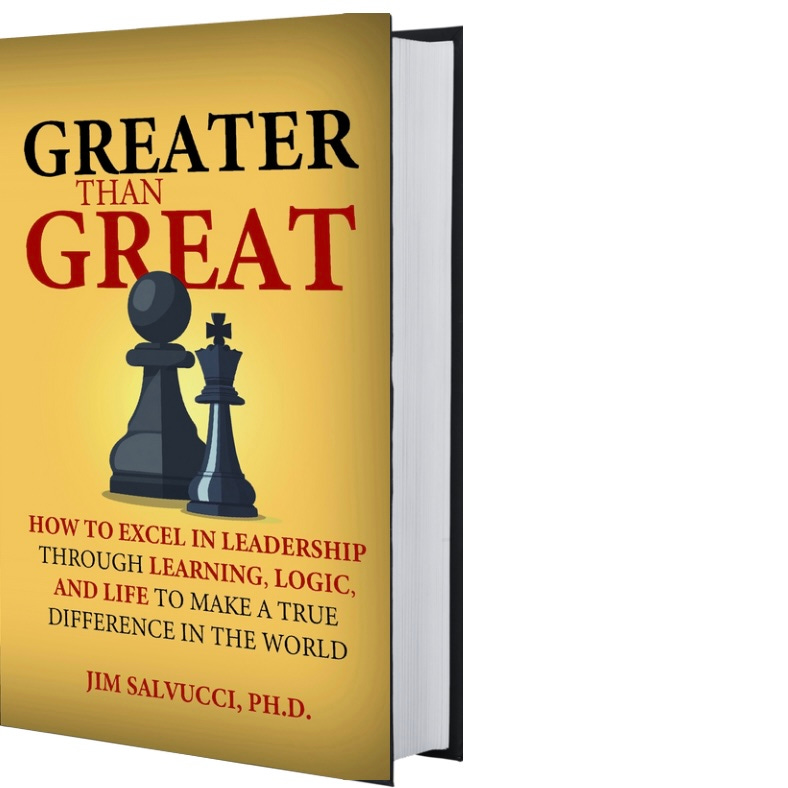When we hear the word “severance” we usually think of a severance package, the money and benefits granted to some terminated workers. But severance refers specifically to the act of severing employees from their employment by cutting positions or directly axing workers. Like termination, these are violent words, indicating a chopping off, an amputation, decapitation, or death. HR lingo can be so cruel!
The best kind of severance package is the “golden parachute,” which offers enough compensation to fired top executives to float them gently back to terra firma. Almost all other severance packages are horribly inadequate—a couple of weeks pay and off you go. Better than nothing but not by much. Many packages come at the price of a non-disclosure agreement—an ignominious and painful imposition that silences you forever and allows injustice to march on unabated.
That’s why the title of the television series Severance is so clever. It evokes the more figurative but fraught definition—the termination package—but really refers to the literal severing of the self.
The show presents a world where people can elect to have their work lives surgically separated—severed—from their home lives via an implant. Their worker selves (called “innies”) and their non-worker selves (called “outies”) have no connection to one another. This arrangement means that the company—the fictional conglomerate Lumon—can trust its staff with proprietary secrets, and the employees can have a home life unburdened by the stress of work.
If you’ve ever struggled to maintain a work-life balance, doesn’t this scheme sound like the perfect solution? After all, one of the most under-appreciated aspects of work and life is our limited bandwidth. Trouble at home can limit our capacity to function at work, and trouble at work means we bring our stress home. Whatever keeps you up at night—be it family turmoil or work anxiety—affects both work and home.
Lumon’s surgical severance seems a flawless solution, your work and life in harmony as separate realities. At home you can relax without worrying about how you’ll placate your crackpot boss. At work you can complete your tasks without dwelling on your spouse’s demands for your affection. Perfect!
Of course in the show, it’s anything but. As it turns out, the innies feel exploited and discarded. At the end of each day they shut down their equipment, turn out the lights, and board an elevator. In their next instant of consciousness, they are leaving that elevator, turning on the lights, and rebooting their equipment.
Imagine! From their perspective, their new workday starts the moment after they’ve left for the day. They have no interests but work interests. They have no relationships but work relationships, and all their memories are work memories. It’s a nightmare with no awakening.
Worse still, Lumon is a cult-like organization that venerates its founding family, the Eagans. The severed employees must display perfect loyalty to Lumon and are rewarded with infantilizing “parties,” featuring treats, games, and cheesy gifts—balloons anyone? The corporation is a family, and the innies are the children. The work is mystifying and seemingly pointless, but employees may neither question nor shirk their duty.
We see the innie characters struggle with this arrangement: pasting on fake smiles even as their souls writhe in pain, completing mindless tasks with no end, loving others they can never reach. Eventually the pain causes them to rebel.
The 2024 movie Kinds of Kindness presents a similar scenario but even more extreme in some ways. It too depicts a version of work-life stability, but in this case work utterly dominates every aspect of being. The employer dictates where the employee lives, how he lives, what he does, what he drinks, and even whom he loves. Work becomes life. Think about it. If your employer has selected your spouse, are you ever not at work?
As far-fetched as these fictions may seem, are they? Many employers seek to control critical aspects of their employees’ work lives—whom they interact with, what they wear, when and how they eat. Furthermore, like the employees in Severance and Kinds of Kindness, workers often feel disconnected from their work, which they struggle to understand. Why this task? Why these endless and tedious forms? Why yet another #@*&$%! meeting?
Meanwhile, bosses offer little purpose to employees beyond their pay. They also refuse to accommodate the realities of home life, effectively expecting employees to cleave the two parts of their lives, an expectation Severance takes to its logical conclusion .
By questing for the Holy Grail we call “work-life balance,” we compound this artificial bifurcation. What we usually mean by that phrase is some sort of equity or yin-yang configuration whereby the pleasures of our home life offset or neutralize the stress of work. We supposedly achieve this rapturous state by “setting boundaries”—my work stuff stays at work, and my home stuff stays at home—but what are boundaries other than another sort of severance?
The Severe Truth of Severance
When we meet Severance’s main character, Mark Scout, he’s grieving his wife’s death. He severs his life to free at least part of his being from that heartbreak. The problem is that innies are as human and prone to find reasons to suffer as outies.
According to the Buddha, we suffer because we desire. But desire is a human condition. Outie Mark desires to have his wife back or at least no longer be in pain. Innie Mark—knowing nothing of his wife—desires either to escape from his Lumon nightmare or find meaning in his perpetual toil.
So by splitting his life into two parts that never can meet, Mark has only doubled his agony. He continues to suffer on the outside and finds new ways to suffer at work. Thus, by achieving the perfect work-life balance he increases his misery. He just doesn’t know it.
In this way, Severance is a sort of extended parable. The lesson? That we only have one life and that it necessarily includes our work. As the innie version of Mark puts it, “We’re people, not parts of people.”
Delve more deeply, and it becomes clear that our notion of work-life balance is insidious. Just as bosses diminish the reality of employees’ experiences, so does the pursuit of work-life balance because it doesn’t take into account our whole selves. Work-life balance is bunk.
If you’re miserable at work, nothing at home will compensate for that, which leaves you with only two options to rectify the situation. You can change your attitude or mindset toward your work, or you can change your situation. Either way, the key is to consider your life holistically. Put aside your ambitions and focus on your purpose, your “why.” Not your career but your reason for being. How can you best pursue it?
Unless you achieve enlightenment, you will have unmet desires, so what do you really want to strive for and why? What best gets you there, and how will doing so reflect your values? By finding meaning in your work (or finding work that gives you meaning) you can find meaning in your life. That’s the equilibrium we must seek in this life of ours so long as it remains unsevered.
What has been your experience in pursuing the figurative severance of a work-life balance? Have you ever considered your life more holistically?
Great leaders thrive by understanding life’s wholeness, and I can help.
Unlock the Great Leader Within! Download my free resource, the Transform To GREATness Toolkit, now!
I look forward to hearing from you.
Intro and outro podcast theme music by LiteSaturation from Pixabay.
Have you noticed that my podcast sound has improved in recent months?I started using Descript to record and edit my podcast, and—if you record sound and video—so should you. Descript’s AI assistance has transformed my process and improved my recordings. Now editing is a breeze!Interested? Use my affiliate link to try Descript for free: https://get.descript.com/t8zotbxmi6ds.Let me know if you try it out and what you think.
Need a speaker or a podcast guest? Invite me!
Need an engaging and experienced speaker for your event? Check out my Speaker’s Page.
Looking for a dynamic and insightful podcast guest? Check out my Podcast Guest Page.
I’m Dr. Jim Salvucci, an author, keynote speaker, coach, and consultant. I served higher education for 30 years as an English professor, dean, and vice president before founding Guidance for Greatness to guide young bosses to become the next generation of great leaders. I’m a certified Tiny Habits coach as well as a certified Thrive Global coach and life coach and hold leadership certificates from Harvard University and the American Council on Education in addition to my Ph.D. from the University of Toronto. Central to my leadership philosophy is that all great leaders are decent humans as well as great teachers, guiding their people and their organizations through values toward success. My goal is to guide today’s young leaders to become the next generation of great leaders by offering practical strategies on values-driven leadership.
Coming Soon!
Look for my new book, Greater than Great: How to Excel in Leadership through Learning, Logic, and Life to Make a True Difference in the World, in early 2025!



















Share this post